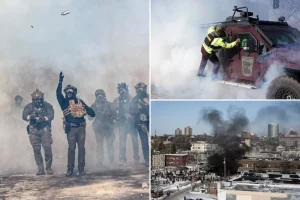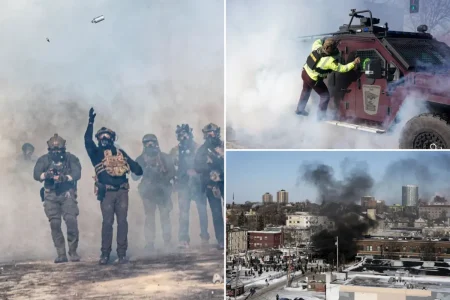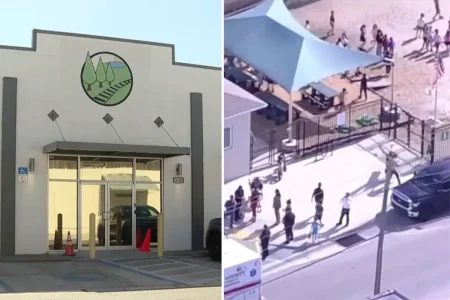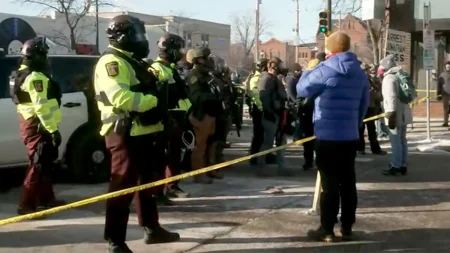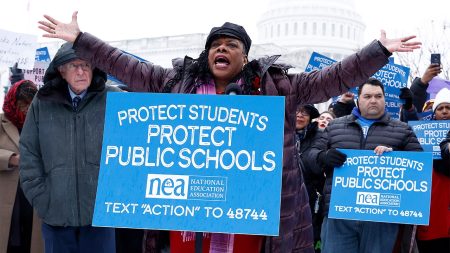Nicaragua’s Alarming Disappearances: The Growing Crisis of Political Detention
Government’s Shadow Tactics Raise Concerns as Dissidents Vanish Without Trace
In the sweltering political climate of Nicaragua, a disturbing pattern has emerged under President Daniel Ortega’s increasingly authoritarian regime. Political opponents, journalists, and civic leaders are disappearing at an alarming rate, with the government employing tactics reminiscent of the darkest chapters of Latin American history. What begins as unexplained absences often transitions into a harrowing reality: individuals being held in undisclosed locations without formal acknowledgment of their detention—a practice human rights organizations identify as enforced disappearances. Most troublingly, at least two detained dissidents have recently been found dead, sending shockwaves through Nicaraguan society and the international community.
The situation represents a significant escalation in the government’s crackdown on opposition voices, moving beyond public arrests and formal charges to a more sinister approach designed to instill fear while evading accountability. “What we’re witnessing in Nicaragua today represents a fundamental breakdown in the rule of law,” explains Maria Gonzalez, a human rights attorney who fled Nicaragua last year after facing threats for her legal defense of political prisoners. “When authorities detain people without acknowledging custody, they place these individuals outside the protection of the law, creating conditions where torture, execution, and other abuses can occur with impunity.” This systematic denial of basic legal protections violates international human rights standards and Nicaragua’s own constitution, which guarantees due process and prohibits arbitrary detention.
The Human Toll: Families Left in Agonizing Uncertainty
For the families of those who have disappeared, the psychological torment is immeasurable. Carmen Aguirre, whose brother Carlos, a student activist, vanished after being followed by unmarked vehicles in Managua, describes the ordeal as “living in a perpetual nightmare.” For three weeks, her family visited police stations, hospitals, and morgues, encountering only denials and silence from officials. “The cruelest part is not knowing,” she says, her voice breaking. “Is he alive? Is he being tortured? Does he have his medication for his heart condition?” These questions haunt thousands of Nicaraguan families whose loved ones have been swept into what human rights defenders call a “black hole” of detention—a system deliberately designed to operate outside legal frameworks and public scrutiny.
The psychological warfare extends beyond the missing individuals to create a chilling effect across society. When 64-year-old university professor Eduardo Morales disappeared after criticizing government policies in a private university lecture, his colleagues immediately self-censored, deleting social media posts and canceling planned academic discussions. “Fear becomes the most effective form of control,” notes Dr. Lucia Mendez, a sociologist specializing in authoritarian regimes. “When people don’t know what specifically triggers a disappearance—when the rules are deliberately kept unclear—they restrict their own behavior far more severely than any written law could accomplish.” This atmospheric terror suppresses civic engagement and political participation more effectively than overt repression, as citizens cannot know which actions might cross invisible lines.
Tracing the Pattern: From Public Repression to Clandestine Operations
The shift toward enforced disappearances represents an evolution in the Ortega government’s approach to silencing dissent. Following the widespread protests of 2018, when hundreds of Nicaraguans were killed in government crackdowns, international pressure and sanctions prompted a tactical adjustment. “Initially, the regime conducted high-profile arrests with formal charges, however spurious,” explains Roberto Vega, a political analyst now based in Costa Rica. “But these generated international headlines and specific targets for diplomatic pressure. Disappearances create plausible deniability and complicate international advocacy efforts.” This calculated move toward clandestine detention practices coincides with Nicaragua’s increasing isolation from democratic nations and growing reliance on allies like Russia, Venezuela, and Cuba—countries with their own troubling human rights records.
The cases of Fernando Zamora and Lucia Pineda, the two dissidents found dead after disappearing, reveal the deadly potential of this system. Zamora, a rural community organizer who had opposed government-supported mining projects, was discovered in a roadside ditch weeks after his family reported him missing, his body bearing signs of torture according to independent medical evaluations. Pineda, a journalist who continued operating a small digital news platform despite the government’s closure of independent media outlets, was officially reported to have died from “natural causes” after being missing for eleven days, though her family was denied an independent autopsy. These deaths represent what human rights defenders fear most—that disappearances create perfect conditions for extrajudicial killings.
International Response: Between Condemnation and Action
The international community’s response has been a mix of strong condemnations and limited practical impact. The Organization of American States has passed multiple resolutions demanding transparency about detentions and access for international observers, while the United Nations Human Rights Council has appointed a special rapporteur on the Nicaragua situation. Individual countries, particularly the United States and European Union members, have expanded targeted sanctions against Nicaraguan officials implicated in human rights abuses. “The international response faces fundamental challenges,” acknowledges former Costa Rican diplomat Elena Montalvo. “When a government deliberately operates outside legal frameworks, traditional diplomatic pressure points become less effective. You can’t appeal to institutions that the regime has already hollowed out.”
Human rights organizations emphasize that the crisis requires more innovative approaches. “Conventional diplomatic tools weren’t designed for regimes that have abandoned democratic pretenses entirely,” argues Carlos Mendoza of the International Crisis Group. “More effective strategies might include enhanced support for civil society organizations documenting disappearances, technological assistance to help at-risk individuals avoid surveillance, and coordination with neighboring countries to create safe pathways for those fleeing persecution.” The case of Nicaragua illustrates a broader challenge for human rights advocacy in an era when authoritarian governments have grown increasingly sophisticated at evading traditional forms of international pressure while maintaining domestic control.
The Broader Implications: Democratic Backsliding in the Region
Nicaragua’s descent into enforced disappearances and extrajudicial killings represents a severe warning about democratic backsliding in Latin America. Once celebrated for its democratic transition following the Sandinista revolution and subsequent civil conflict, Nicaragua now exemplifies how electoral authoritarianism can gradually dismantle institutional checks and balances. “What makes Nicaragua particularly concerning is the comprehensive nature of the repression,” explains Dr. Alejandra Santos of the Latin American Democracy Observatory. “The regime has methodically eliminated independent courts, civil society organizations, free media, and political opposition—creating a vacuum where fundamental rights simply vanish.”
This methodical dismantling of democratic institutions offers lessons for citizens and advocates across the region, where several countries face significant challenges to democratic governance. “The Nicaraguan case demonstrates how crucial it is to defend seemingly abstract institutional principles before they’re undermined beyond repair,” warns former judge Ricardo Ordoñez, who resigned from Nicaragua’s judiciary after facing pressure to rule in the government’s favor in political cases. For the international community, Nicaragua’s crisis demands not just condemnation but creative engagement and sustained attention. For Nicaraguans themselves, particularly the families of the disappeared, the immediate priority remains more urgent: finding their loved ones and bringing an end to a practice that represents one of the most profound violations of human dignity. Until then, every unexplained absence will continue to spread terror far beyond the individual victim, achieving precisely what the authorities appear to intend—a society paralyzed by fear of joining the ranks of the disappeared.

